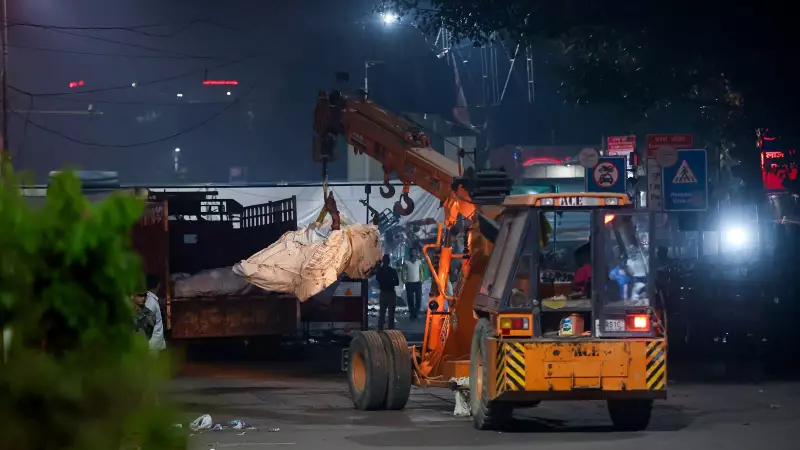
National Medical Commission Takes Unprecedented Action Against Doctors
In a significant move, India's apex medical regulator, the National Medical Commission (NMC), has permanently barred four medical practitioners from practicing medicine after their alleged involvement in the November 10 Delhi explosion near the Red Fort. The decision, announced on Friday, represents one of the most severe actions the medical regulatory body can take against registered doctors.
The four doctors identified in the NMC order are Dr Muzaffar Ahmad, Dr Adeel Ahmad Rather, Dr Muzammil Ahmad Ganai, and Dr Shaheen Shahid Ansari. All four have been formally charged under the stringent Unlawful Activities Prevention Act (UAPA) by investigating agencies.
Medical Registration Details and Immediate Consequences
Three of the doctors - Muzaffar Ahmad, Adeel Ahmad Rather, and Muzammil Ahmad Ganai - were originally registered with the Jammu & Kashmir Medical Council. The fourth doctor, Shaheen Shahid Ansari, held registration with the Uttar Pradesh Medical Council.
The NMC's order explicitly states that based on evidence collected by investigating agencies, the doctors' association with the blast case is prima facie inconsistent with the standards of ethical propriety, integrity and public trust expected from medical professionals. Consequently, their names have been ordered to be removed from the Indian Medical Register/National Medical Register with immediate effect.
This action bypasses the usual procedure where state medical councils issue showcause notices, conduct hearings, and then pass orders, with doctors having the right to appeal before the NMC's Ethics and Medical Registration Board. In this case, the order came directly from the national regulatory body.
Registration Irregularities Uncovered
Investigations revealed that while at least one of the doctors was practicing at Faridabad's Al Falah University, none of them held valid medical registration in Haryana. Sources within the NMC clarified that to practice medicine in a new state, doctors typically need to obtain a No Objection Certificate (NOC) from their original state medical council and then register with the medical council of the state where they intend to practice.
The doctors involved had obtained NOCs from the Jammu & Kashmir Medical Council to practice in other states, but failed to complete the necessary registration formalities in Haryana where they were employed.
An expert in medical registrations emphasized that most Indian states mandate that doctors must be registered with their respective state medical councils when practicing within that state. The responsibility for verifying this registration primarily falls on the employing organization or healthcare institution.
This case highlights critical gaps in the verification processes employed by medical institutions and raises important questions about the mechanisms ensuring that healthcare professionals maintain the highest ethical standards both within and outside their medical practice.






